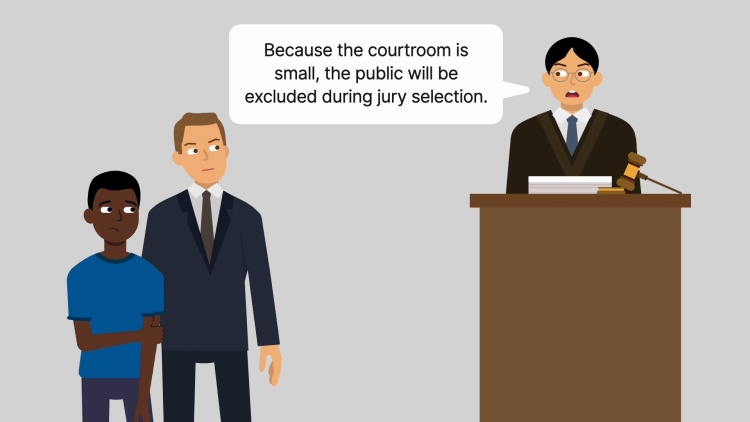Weaver v. Massachusetts
United States Supreme Court
137 S.Ct. 1899, 198 L.Ed.2d 420 (2017)
- Written by Rose VanHofwegen, JD
Facts
A witness saw a young man with a pistol drop a hat as he fled the scene of a shooting. Police linked DNA on the hat to sixteen-year-old Kentel Weaver (defendant) and charged him with murder. The court called 60 to 100 potential jurors but had seating for only 50 or 60, so it excluded the public from the courtroom during voir dire, including Weaver’s mother and her minister. The United States Supreme Court had not yet issued Presley v. Georgia, 558 U.S. 209 (2010), clarifying that public-trial rights include jury selection. Weaver’s counsel did not object or advise Weaver about the issue. The jury convicted Weaver and sentenced him to life imprisonment. Weaver requested a new trial based on ineffective assistance of counsel. The court found violation of the public-trial right and ineffective assistance of counsel but no resulting prejudice to Weaver’s case. After the state supreme court affirmed, Weaver appealed to the U.S. Supreme Court.
Rule of Law
Issue
Holding and Reasoning (Kennedy, J.)
Concurrence (Thomas, J.)
Concurrence (Alito, J.)
Dissent (Breyer, J.)
What to do next…
Here's why 907,000 law students have relied on our case briefs:
- Written by law professors and practitioners, not other law students. 47,100 briefs, keyed to 996 casebooks. Top-notch customer support.
- The right amount of information, includes the facts, issues, rule of law, holding and reasoning, and any concurrences and dissents.
- Access in your classes, works on your mobile and tablet. Massive library of related video lessons and high quality multiple-choice questions.
- Easy to use, uniform format for every case brief. Written in plain English, not in legalese. Our briefs summarize and simplify; they don’t just repeat the court’s language.





